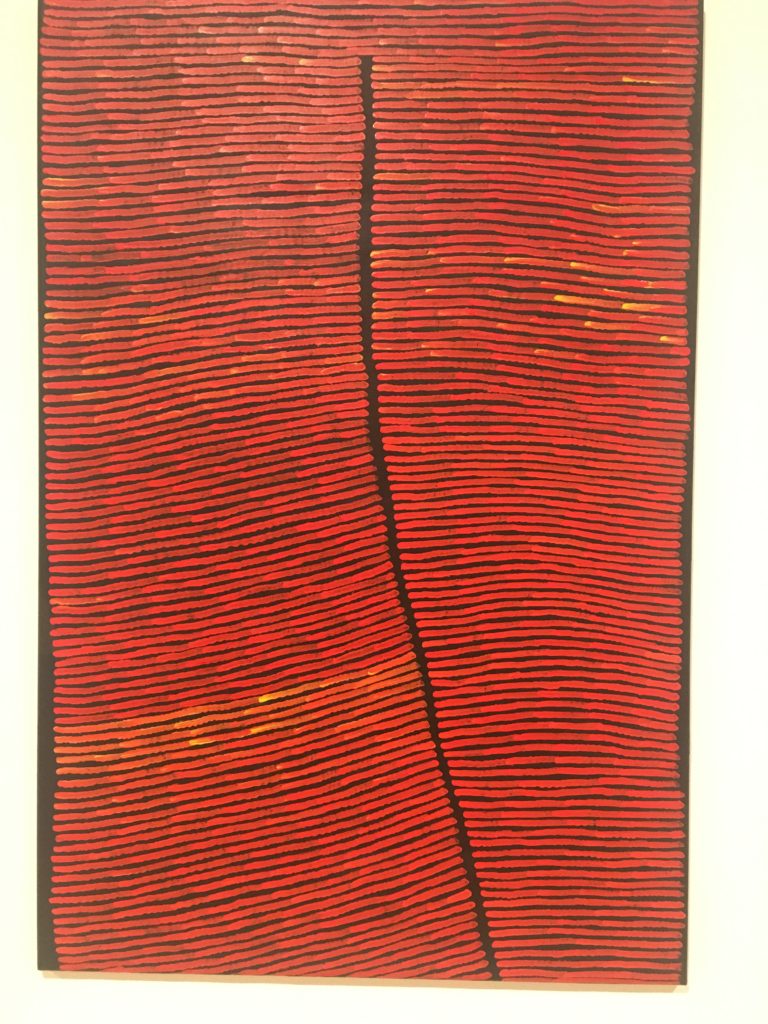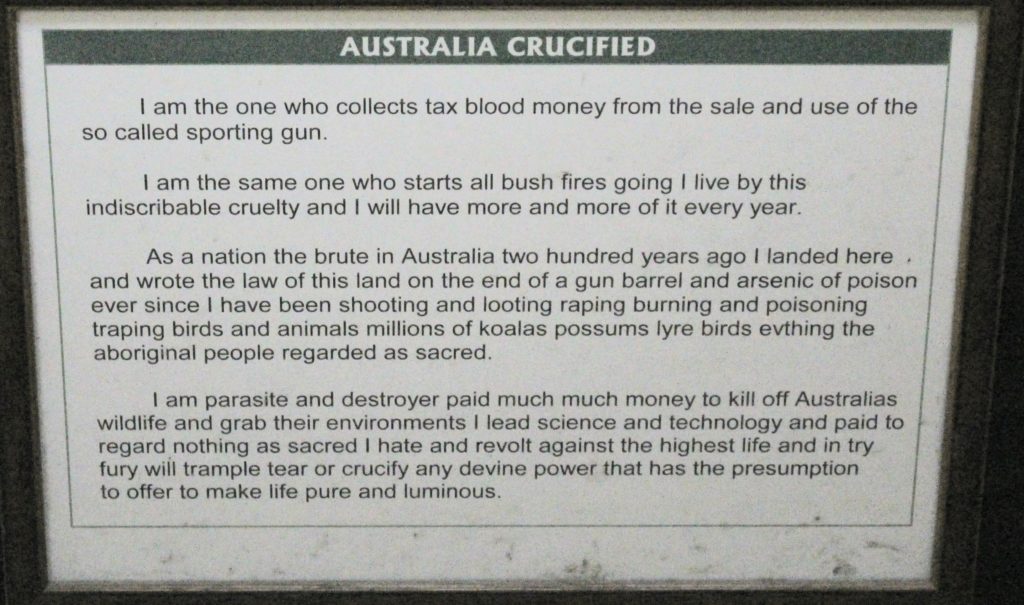
Every nation is riven by historical tensions that are overlooked by their boosters, and yet come to define them. In Britain, the island’s relationship with the rest of Europe, an especially visible problem now, is just the latest iteration in an unresolvable conflict that has been playing since before Julius Caesar. In America we see the conflict between the individualism and vigilantism of the frontier playing out against a worship of the rule of law. Australia, from where I have returned after a six week visit, is no exception. And it approaches a decisive moment.
The tension that runs through the Australian nation is that between the people who have migrated there and the natural environment and indigenous people they found. Those immigrants are the people that made the Australian nation as we understand it. Before that the continent was a complex tapestry of indigenous tribes with much commonality but no national identity. Those immigrants have treated the land they found as resources to be pillaged for their greater wealth, and indigenous peoples as an obstacle to be cleared. The artist William Ricketts had this searing indictment:

And yet Australians love their country and all the things that make it unique in the world – its breathtaking series of natural marvels; its unique plant and animal life; the astonishing landscapes; the incredible Barrier Reef. They are philosophical about the dangers they bring: poisonous snakes and spiders, bushfires and so on. They are even coming to incorporate aspects of aboriginal culture, especially its art, into their own identity. (Indeed in my view the work of modern aboriginal artists, like the one at the top of this piece, are the country’s most striking contribution to the world art scene). All these things are part of what it is to be a modern Australian. Ricketts’s diatribe and the reserve it is displayed in are as Australian as an open-cast coal mine.
And yet the culture of extraction remains dominant. Recently the Economist produced a special report on Australia praising what is, in conventional terms, a very successful economy. But dig deeper and a darker picture emerges. This economic record has been driven by very successful export industries in mining and agriculture. In conventional economic analysis these are highly productive. So much so that they have driven up the Australian dollar to kill off a lot of more traditional industries. In the 1980s most vehicles on Australia’s roads were manufactured domestically. Now local motor manufacturing has ceased to exist. But the conventional analysis does not include damage to the environment. This damage is pretty obvious in mining, which destroys whole landscapes, but it is also severe in agriculture. Australian agribusinesses (I can’t call them farms) are highly mechanised and dependent on artificial inputs such as fertilisers. Earth is left bare for long periods, often allowing the soil to blow away (we experienced a big dust storm in New South Wales). Ideas such as soil rotation are for nostalgic romantics. Meanwhile many of these agribusinesses are being bought by Chinese corporations with no stake in the country’s long term future. Agricultural (and mining) run-off is killing coastal eco-systems, including the Barrier Reef. Meanwhile wasteful agricultural use of water (for example in growing cotton) is also placing huge strains on the landscape. The Murray River runs dry before it reaches the sea.
Nobody is more aware of this than the Australians themselves. But the current political leadership, from the Liberal and National coalition, are indifferent. For them the focus is on short term living standards and low taxes. They deny that climate change is anything Australians should do anything about. They readily give permission for new coal mines, even in prime agricultural land. These policies command widespread support, and the coalition’s leaders seem to think that by following Trumpian tactics they can mobilise this support to stay in power.
And yet this may well fail. Australia is no America. The coalition has become very unpopular after they ditched a moderate Prime Minister, Malcolm Turnbull, who sought compromises to face up to environmental challenges. The Liberals were crushed in a recent state election in Victoria. Most Australians, it seems, want to find a different way.
Actually a more sustainable Australian economy should be perfectly feasible. There is plenty of sunshine and wind to produce renewable energy. The masses of agricultural land could easily be farmed more sustainably. Australians are well-educated, technically savvy and commercially enterprising. They could make more themselves rather than import, using modern AI and robotics.
But moving towards such a path would be a shock. It would require a much lower exchange rate, and doubtless a cut to nominal living standards. Are they really ready for it? Perhaps it will require an economic shock. That may happen. Changes to the Chinese economy could weaken the country’s terms of trade. Excessive property prices and personal borrowing may also force a crisis.
Australians have come a long way to facing up to their demons. But they now face some important and difficult choices. Australia’s national identity could be o the threshold of a transformation.